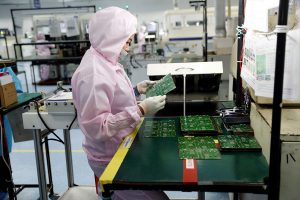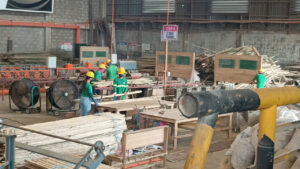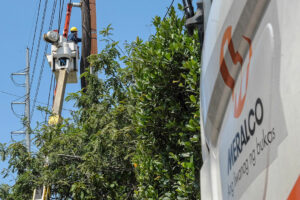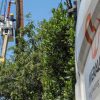By Aubrey Rose A. Inosante, Reporter
NET INFLOWS of foreign direct investments (FDI) dropped sharply in February due to a high base, the Bangko Sentral ng Pilipinas (BSP) said on Monday.
Uncertainty due to the Trump administration’s shifting policies also affected sentiment, leading to lower inflows, analysts said.
Latest BSP data showed that FDI net inflows declined by 61.9% to $529 million in February from $1.388 billion in the same month a year ago.
“This decrease was primarily attributed to base effects,” the central bank said in a statement.
Month on month, net inflows likewise went down by 27.63% from the $731 million recorded in January.
The drop in FDI net inflows in February was largely driven by the 85.9% decrease in nonresidents’ net investments in equity capital, other than the reinvestment of earnings, to $108 million from $764 million.
Broken down, equity capital placements dropped by 82.96% to $146 million that month from $857 million a year prior, while withdrawals slid by 58.06% to $39 million from $93 million.
The BSP said the bulk of equity placements in February mostly came from Japan (56%), followed by the United States (11%), Ireland (10%) and Malaysia (5%).
“These investments were largely directed towards the manufacturing, financial and insurance, real estate, and information and communication industries,” the central bank said.
Reinvestment of earnings dropped by 13.1% year on year to $73 million from $84 million.
Overall, foreigners’ investments in equity and investment fund shares plunged by 78.77% to $180 million in February from $848 million a year prior.
Meanwhile, nonresidents’ net investments in debt instruments of local affiliates also fell by 35.4% to $348 million in February from $540 million in the same month in 2024.
JANUARY TO FEBRUARYDuring the first two months of 2025, total FDI net inflows likewise declined by 45.2% to $1.26 billion from $2.301 billion in the same period last year.
Foreigners’ investments in equity capital other than the reinvestment of earnings slumped by 74% to $196 million in the January-February period from $753 million a year prior.
Equity placements dropped by 74% year on year to $249 million, while withdrawals declined by 73.9% to $53 million.
These placements were mostly from Japan (53%), the US (16%), Singapore (8%), Malaysia (6%) and Ireland (6%) and mainly went to the manufacturing sector.
Meanwhile, nonresidents’ reinvestment of earnings increased by 12.6% year on year to $197 million in the first two months from $175 million.
Lastly, net investments in debt instruments went down by 36.8% to $867 million from $1.373 billion in the same period last year.
“The latest year-on-year and month-on-month decline in the latest FDI data… could be attributed to uncertainties on possible protectionist measures by US President Donald J. Trump,” Rizal Commercial Banking Corp. Chief Economist Michael L. Ricafort said in a Viber message. “Trump’s trade wars could slow down exports, as well as FDIs that are export oriented.”
“The decline in FDIs may be seen as the waiting and hesitant behavior from investors as they wait for clearer directions on global trade,” said Reinielle Matt M. Erece, an economist at Oikonomia Advisory and Research, Inc.
Since returning to the White House in January, Mr. Trump has introduced a slew of protectionist measures, which he said meant to encourage investments in the United States to restore its dominance. These measures include various import tariffs, with some targeting specific products.
In April, he announced “reciprocal” tariff rates to be imposed on America’s largest trading partners, including the Philippines. These higher duties have been suspended until July, with most countries now negotiating with the US.
Mr. Ricafort added that foreign investors were on wait-and-see mode prior to the release of the implementing rules and regulations (IRR) of the Corporate Recovery and Tax Incentives for Enterprises to Maximize Opportunities for Reinvigorating the Economy (CREATE MORE) Act, which was signed into law in December.
The CREATE MORE Act further reduces the corporate income tax to 20% from 25% for registered business enterprises.
The IRR for the law released in mid-February now gives investors more clarity, Mr. Ricafort said.
In the coming months, Mr. Erece said investment growth may slow with the global economic outlook expected to take a hit due to the Trump administration’s trade policies.
“Easing monetary policy, better business environment, and a resilient domestic economy may be ways to still attract investments in the country,” he added.
BSP Governor Eli M. Remolona, Jr. told Bloomberg last week that they are open to cutting rates by a further 75 basis points (bps) this year amid cooling inflation.
Last month, the central bank slashed benchmark borrowing costs by 25 bps, bringing the policy rate to 5.5%. It has now reduced benchmark rates by a total of 100 bps since it kicked off its rate-cut cycle in August last year.

















